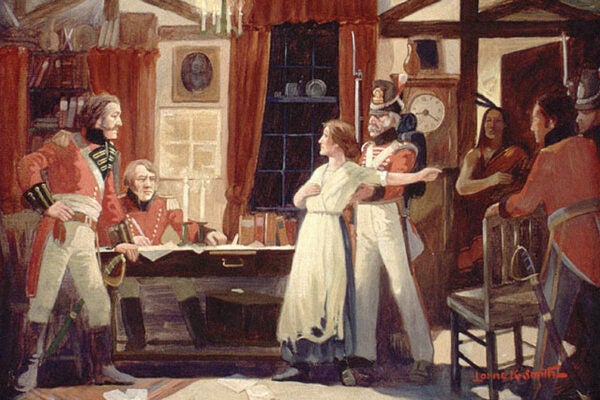Picture someone who spends hours each day debating politics, indiscriminately consuming serious news and dubiously sourced gossip, yet takes no part in actual political action. That might describe many twenty-first-century Twitter users. As philosopher Uriel Heyd writes, it’s also how satirists depicted obsessed news consumers in eighteenth-century Britain.
The turn of the century brought a flourishing of print media, Heyd writes. By the 1710s, artisans and shopkeepers filled coffeehouses, discussing and debating the events in political and foreign affairs that they had read about in the day’s papers.
Soon, satires appeared in theaters, depicting regular citizens absurdly focused on the political sphere, to the detriment of their personal lives. In the 1711 play The Generous Husband, a woman dismisses a news-obsessed man as “a walking News-paper: his Head is the very Emblem of the dirty Houses he frequents, full of foul Pipes, News, and Coffee—Foh, methinks I smell him hither; he stinks of Tabacco like an old Gazette.” In the 1769 comedy The School for Rakes, a female character asks to have newspapers and magazines sent to her: “My mental faculties are quite at a stand—I have not had the least political information, these four days.”
Heyd focuses particularly on Arthur Murphy’s 1758 play, The Upholsterer, or What News? The play’s protagonist is an upholsterer named Quidnunc—Latin for “what news” or “what’s new.”
“Quidnunc communicates with his brother and children only in the language of newspapers, devoid of personal emotional expression,” Heyd writes. “He loses his sense of perspective, haranguing his brother in the dead of night with ‘fresh intelligence.’”
Quidnunc’s upholstery business suffers from neglect. However, he’s thrilled when he sees a notice of his bankruptcy appear in the newspaper: “I shall be read of, in the same paper, in the London Gazette, by the powers abroad; together with the Pope, and the French king and the Mogul, and all of ’em—good, good, very good!”
This, Heyd writes, effectively satirized the way newspapers allowed more people to feel like part of world affairs than they really were. But it also occurred at a time when middle-class merchants and artisans were actually becoming increasingly significant players in the political world.
“Suddenly, the British political public was widening, becoming much more informed (albeit with a mix of truths, half-truths, and outright lies) and more argumentative,” Heyd writes. “A breakdown of hierarchy ensued: everyone was privy to important information once controlled by a select few, while the uniqueness and value of this information was further eroded by being placed on the same level as gossip and information about the theater.”
So, on one hand, satires called out an indiscriminate, essentially passive fascination with “news” of any kind. On the other, they reflected dismay at a world where traditional social order really was coming apart, where the discussion of ideas in coffeehouses eventually contributed to new, revolutionary politics. It might not be a stretch to see both strains in critiques of social media power-users today.







